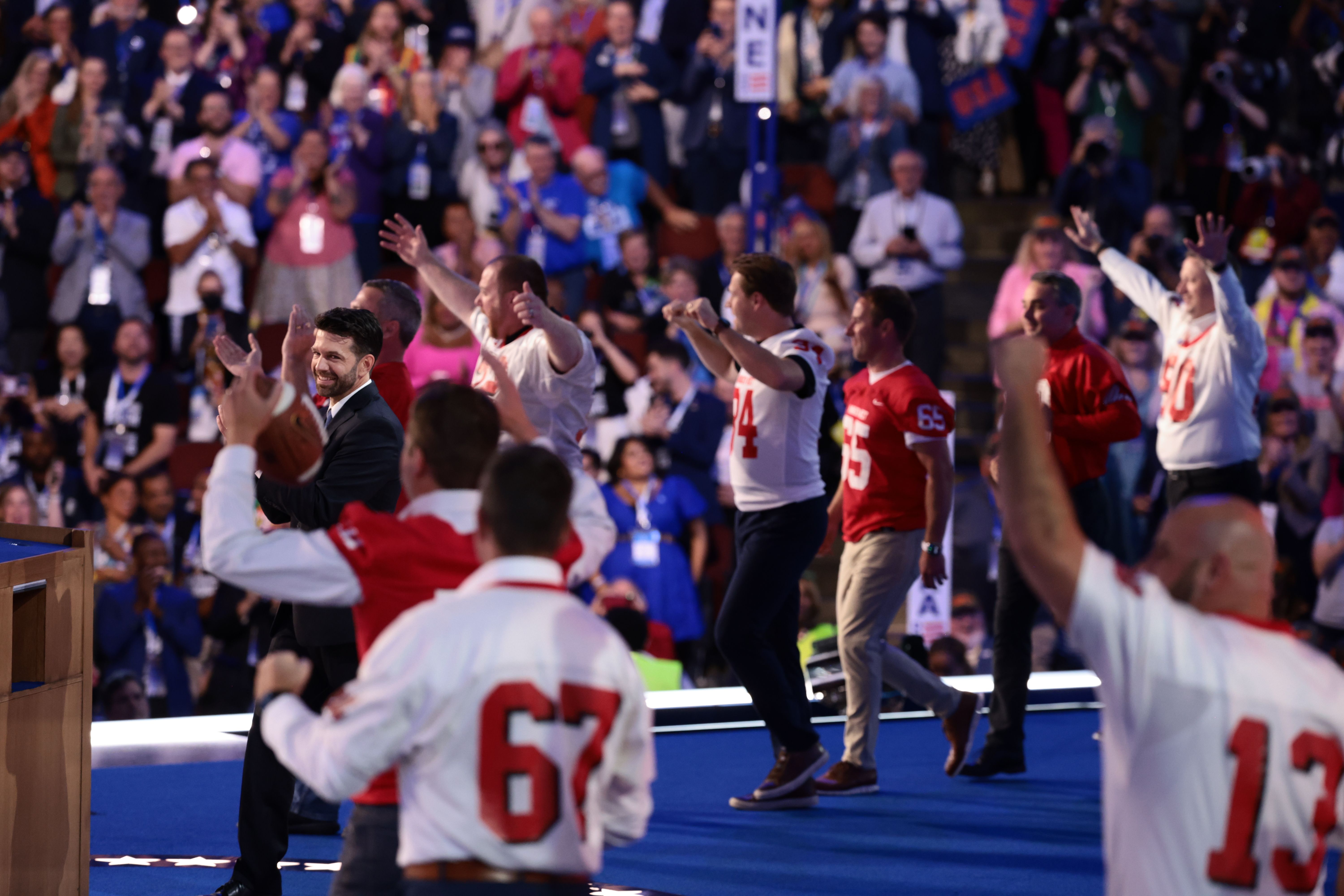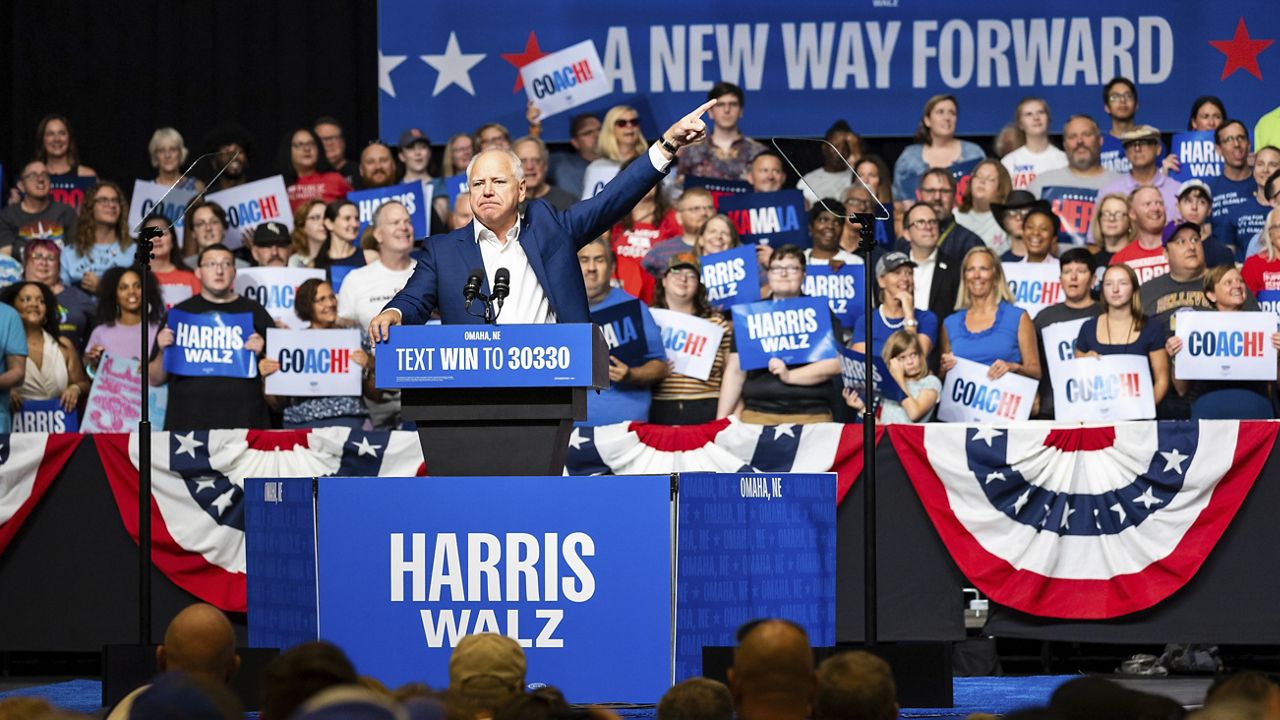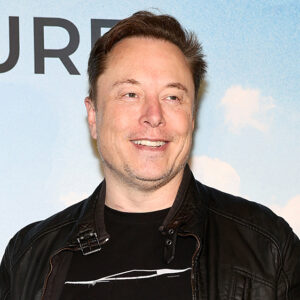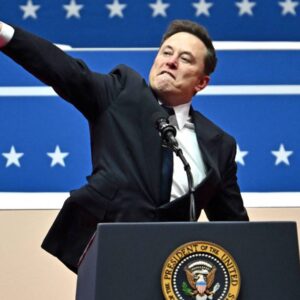In a surprising turn of events that has captured national attention, Minnesota Governor Tim Walz has been barred from attending college football games following a highly publicized incident where he faced intense booing from a crowd. The situation unfolded during a recent game at the University of Minnesota, where tensions surrounding political opinions and sports have converged in an unexpected way.

The incident began when Walz, a Democratic governor known for his progressive policies, attended the game to show support for the Golden Gophers. However, as he made his way through the stands, he was met with a chorus of boos from fans who felt strongly about his leadership decisions. The chants of “You’re not welcome here!” echoed throughout the stadium, creating a palpable atmosphere of discontent. This reaction from the crowd not only surprised Walz but also sparked a heated debate about the role of politics in sports.
As the news of the incident spread, it quickly became a topic of discussion on social media and within political circles. Supporters of Walz argued that the booing was an inappropriate response to a public official simply attending a sporting event. They emphasized that sports should serve as a unifying force, bringing people together regardless of their political affiliations. Critics, on the other hand, saw the booing as a legitimate expression of dissatisfaction with the governor’s policies, particularly regarding education and public health.
In response to the overwhelming backlash, the University of Minnesota announced that it would bar Walz from future college football games. The decision was met with mixed reactions. Some applauded the move, arguing that it was essential to uphold the sentiments of the fanbase. Others criticized it as an infringement on the governor’s rights to attend public events. This incident raises important questions about the intersection of politics and sports, a topic that has been increasingly relevant in recent years.
The booing incident highlights a broader trend in American society where political divisions have seeped into every aspect of life, including entertainment and sports. Athletes and sports figures have increasingly used their platforms to express political opinions, leading to both support and backlash from fans. This phenomenon has transformed sporting events into arenas for political expression, often overshadowing the games themselves.

Governor Walz’s experience serves as a stark reminder of the polarized climate in which we live. While some may argue that sports should remain separate from politics, the reality is that public figures are often subject to the same scrutiny as their policies and actions. The emotional reactions of fans reflect a growing frustration with leaders whom they feel do not represent their values or priorities.
Moreover, the incident raises concerns about the treatment of public officials at sporting events. While it is essential for citizens to voice their opinions, the question remains: how far is too far? Should public officials be shielded from hostility in venues where they seek to engage with their constituents? The answer is complex, as it involves balancing free speech with the need for respectful discourse.

In the aftermath of the incident, discussions about the implications of such actions are likely to continue. The decision to bar Walz from future games may set a precedent for how public officials are treated at sporting events. As political tensions continue to escalate, it’s crucial for both fans and officials to find common ground, recognizing that sports can be a unifying force instead of a battleground for political disputes.
In conclusion, the incident involving Governor Tim Walz serves as a microcosm of the broader societal divisions we face today. As sports continue to intertwine with politics, it’s vital for individuals to approach these issues with empathy and understanding. Whether in the stands or in the political arena, fostering respectful dialogue will be essential for bridging divides and promoting unity in an increasingly fragmented world.



